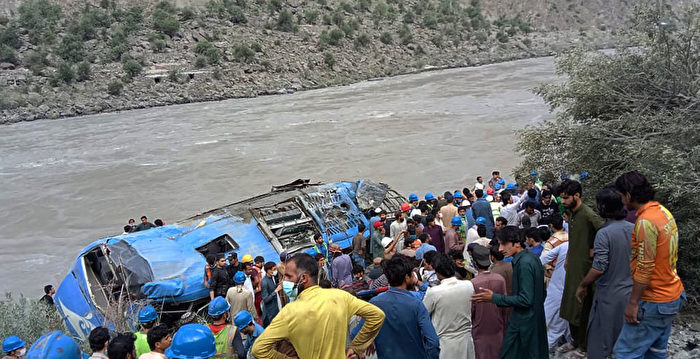[Epoch Times, August 20, 2021](Epoch Times reporter Xu Jian comprehensive report) The United States hurriedly withdrew from Afghanistan. There was chaos in the process. The CCP media gloated at this, but the American media analyzed that there was no U.S. military stationed for protection. Central Asia will scare the CCP, and the “Belt and Road” project that the CCP has invested in may also be in trouble.
The great changes in Afghanistan have made the CCP complacent in its publicity, which seems to be in line with its so-called “East ascends and West descends” argument. Bloomberg reported on August 19 that the irony for the CCP is that once the US forces withdraw, the situation in Afghanistan will plunge the CCP into a quagmire.
In fact, the current situation in Afghanistan makes Beijing a headache. Beijing fears that the chaos there will not only spread to the turbulent Xinjiang region of China, but also to Pakistan. The CCP has invested huge sums of money in Pakistan to build the so-called “One Belt One Road” project and provided huge loans to Islamabad, all of which may be affected by the chaos in Afghanistan.
Pakistan, adjacent to China and Afghanistan, is the main country participating in the CCP’s “One Belt, One Road” initiative. According to reports, the so-called “China-Pakistan Economic Corridor” project alone cost the CCP 62 billion US dollars. The key link between the Indian Ocean.
But recently, Beijing has begun to worry about its assets there.
On July 14, a bus carrying engineers from the Chinese Gezhouba Group was attacked in northwestern Pakistan, killing 9 Chinese citizens. At that time, they were heading to the site of a water conservancy project in the remote town of Dasu. The project was led by Gezhouba Group Co., Ltd. and was not even part of the “China-Pakistan Corridor”, but was funded by the World Bank.
Pakistan’s Foreign Minister Shah Mehmood Qureshi stated that Pakistan’s “Taliban” (TTP) was the culprit in this attack. They have ties to the Islamic radical organization Al Qaeda and the Islamic State.
In April this year, the Pakistani Taliban launched a suicide bombing at the hotel where the Chinese Communist ambassador stayed.
When asked about the connection between the Dasu car attack and the Taliban, the Ministry of Foreign Affairs of the Chinese Communist Party made an interesting response in July: “Which Taliban?” Beijing described the Afghan Taliban as “a key military And political power”, but regard the Pakistani Taliban as a “terrorist organization”.
In late July, when the Afghan Taliban made a “visit” in Beijing, the CCP obtained an “open promise” from the other side that it would not allow militants to use Afghan territory as a base to attack China.
According to Bloomberg’s analysis, this commitment alone shows how anxious the CCP is about the Taliban that just came to power. Although the CCP has not invested much in Afghanistan, it cannot withstand Pakistan’s huge investment in vain, which will shatter the “Belt and Road” dream.
Although the Chinese Communist Party has repeatedly publicized that the Pakistani Taliban (Bata) was originally just a branch of the Afghanistan Taliban (Ata). In 2007, they established themselves on the hill. The two have separated. But in fact, the relationship between Ata and Bata is complicated. There are at least 6,000 well-trained armed personnel operating in Afghanistan, which shows the close relationship between the two.
Bloomberg cited the CCP’s failed investment in Venezuela as an example. Once upon a time, Venezuela was the favorite destination of the Chinese Communist Party Bank, because the Chinese Communist Party bet that the country’s oil production would be sufficient to repay its debts. At the beginning of President Maduro’s term of office in 2013, the CCP had provided Venezuela with a credit line of US$40 billion, but about US$30 billion of this was still outstanding. If Maduro falls, tens of billions of dollars may be in vain, proving that the CCP’s investment in Venezuela is a major misjudgment.
Editor in charge: Lin Yan#
.
